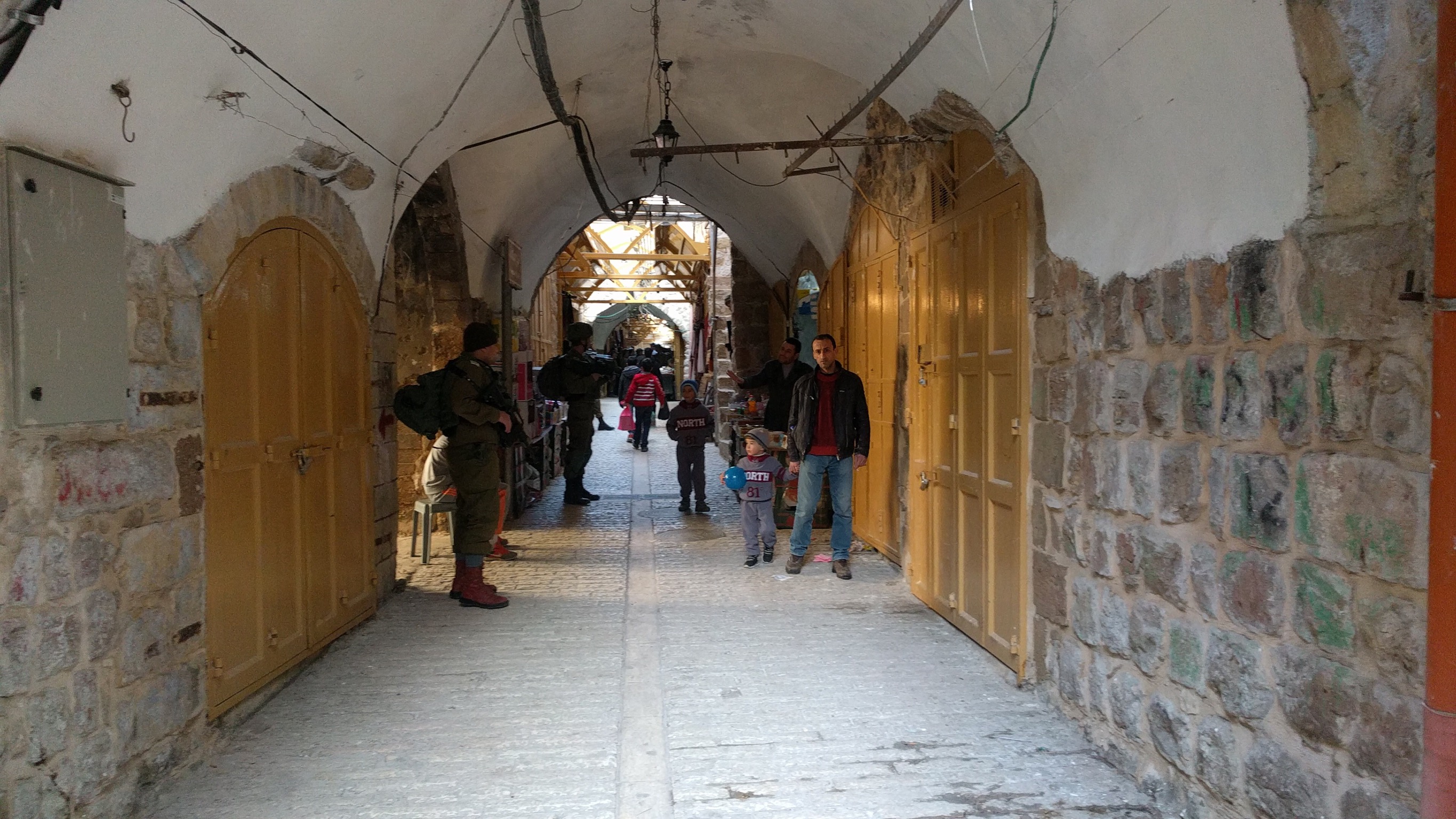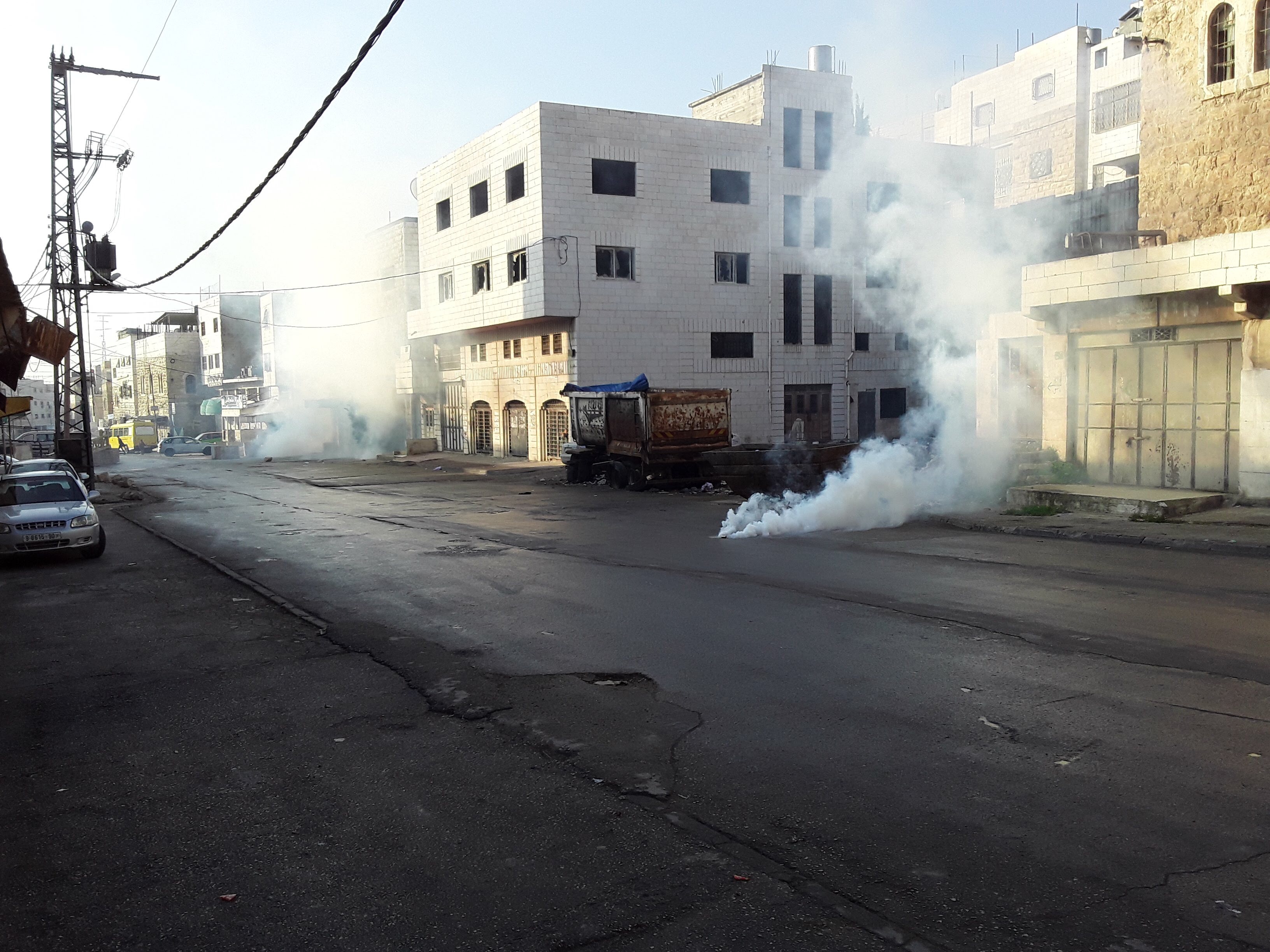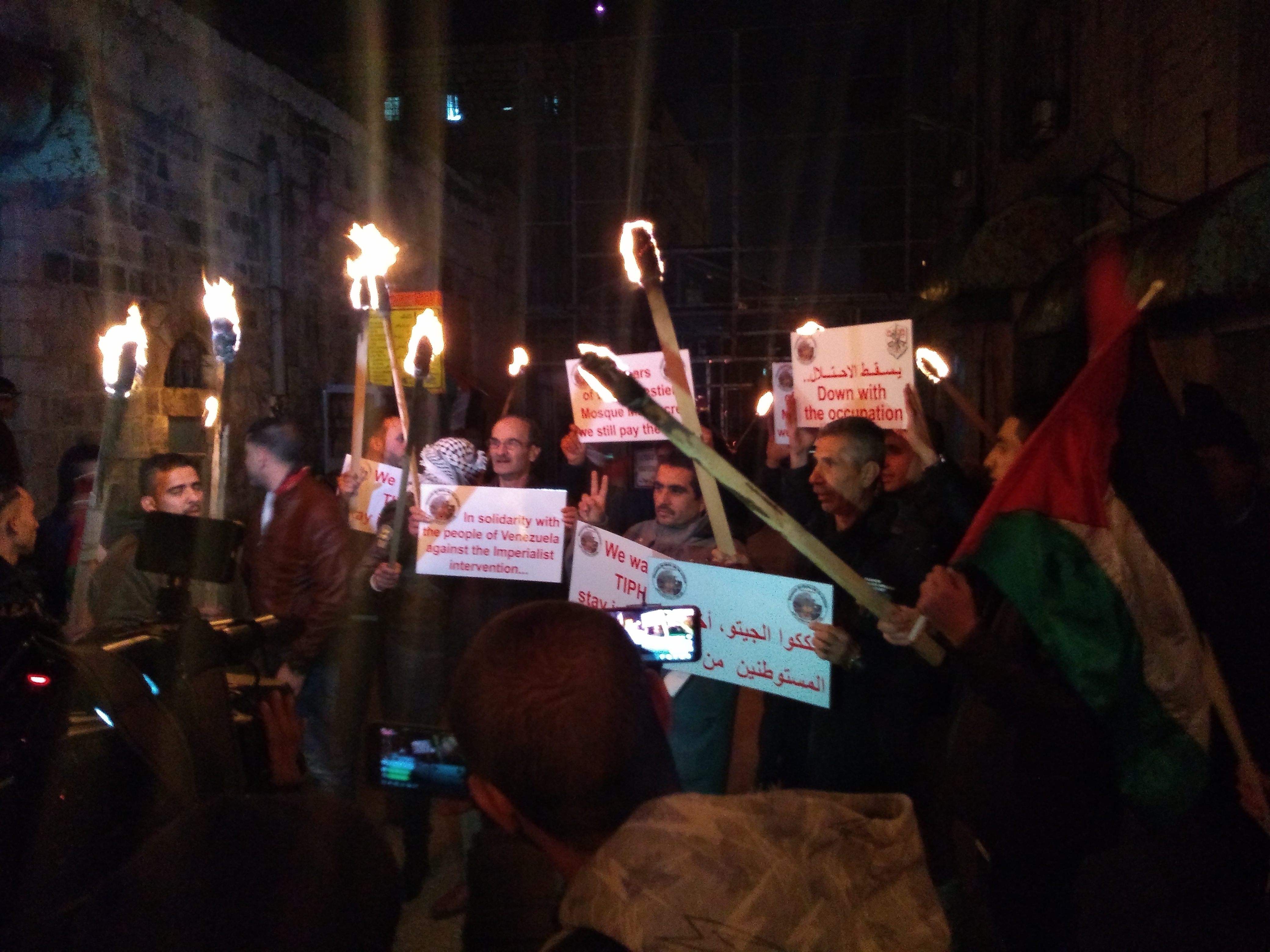Category: Reports
-
Hebron Report 15.02.2019
On the morning of February 14, 2019, ISM activists were forced to leave the Shuhada Street area as it was declared a closed military zone. The activists were monitoring the Qurtuba checkpoint, which is passed every morning by teachers and children going to school. Palestinians are regularly targeted and harassed by settlers and the military…
-
A Report-back from Dismantle the Ghetto’s Torch March
10th February 2019 | International Solidarity Movement, Al-Khalil team | Hebron, occupied Palestine Demonstrators marched through Al-Khalil today holding torches, flags and signs that called for the re-opening of the stolen Shuhada street, the return of TIPH and other international support, the end of the occupation, as well as a statements of anti-imperialism, anti-colonialism and solidarity…



